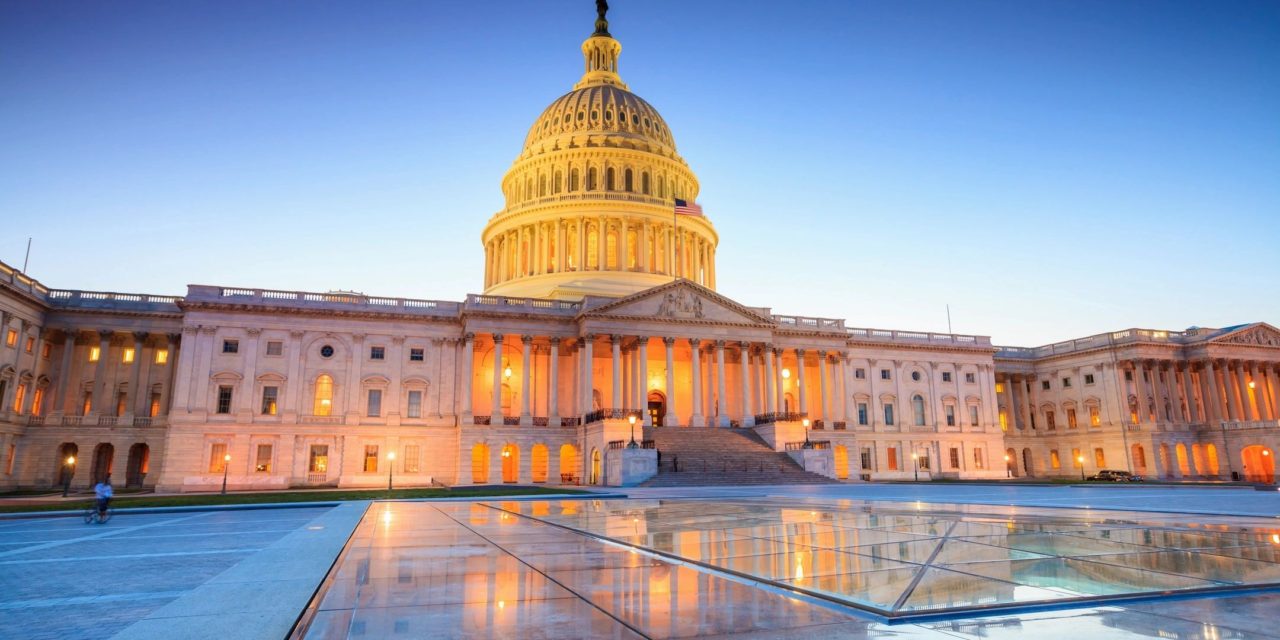Insurrection—A word often used in describing things that happened two centuries ago. But on January 6, 2021, it happened again, for the first time in US history since the British sacked the Capitol in 1814.[1]
Insurrection—A rebellion of citizens or subjects of a country against its government. Article 1, Section 8 of the US Constitution gives Congress the power to call “forth the militia to execute the laws of the Union, suppress insurrections, and repel invasions.” They did. It was slow in coming, and sluggish in responding. But five hours after it started, they finally did arrive.
Insurrection—The morning of January 6, 2021. Thousands of protesters surrounded the Washington Monument to rally. Several people gave speeches on the Ellipse to Trump supporters. Trump adviser Rudy Giuliani said, “Let’s have trial by combat . . . This is bigger than Donald Trump. It’s bigger than you and me. It’s about these monuments and what they stand for . . . This has been a year in which they have invaded our freedom of speech, our freedom of religion, our freedom to move, our freedom to live. I’ll be darned if they’re going to take away our free and fair vote . . .”[2]
Insurrection—President Trump urged the protestors to march on the Capitol—“You’ll never take back our country with weakness. You have to show strength and you have to be strong. We have come to demand that Congress do the right thing and only count the electors who have been lawfully slated.”[3] He also said, “Fight. We fight like hell. And if you don’t fight like hell, you’re not going to have a country anymore.” He declared they would be “going to the Capitol and we’re going to try and give [Republicans] the kind of pride and boldness that they need to take back our country.”[4]
Insurrection—Congressman Mo Brooks told the crowd, “Today is the day American patriots start taking down names and kicking ass.”[5]
Insurrection—Congressman Madison Cawthorn said, “This crowd has some fight.”[6]
Insurrection—Violence at the Capitol. At approximately 2:15 P.M., the barricades around the perimeter of the Capitol grounds manned by police were breached, and Capitol security advised the members of Congress to take cover. The protestors, now redefined as rioters, stormed the Capitol. They broke past security to enter the Capitol itself, including the National Statuary Hall.[7] Most rioters simply walked into the Capitol on foot. Others used ropes and makeshift ladders. Some broke windows to get in. Some sprayed Capitol Police with chemical agents. Some rioters carried Confederate flags, Nazi emblems, and wore riot gear. Outside the building, they put up a gallows, punctured police vehicle’s tires, and left a note saying “PELOSI IS SATAN” on the windshield.[8]
The insurrection was a “thing” unto itself. The thugs climbing the walls, spraying chemicals and profanity, while spewing anti-government rants are the insurrection. But the inciting of it is a different matter. From an ethical perspective, which is more unnerving, more difficult to believe, and more difficult to accept: that it happened, or that the President incited it?
Inciting— A transitive verb. Madame Merriam Webster defines it: to move to action—to stir up—to spur on—to urge on.
Inciting—A federal crime. It is a crime to incite, assist, or engage in an insurrection against the United States. Section 2383 of the U.S. Code covers “Rebellion or Insurrection.” It provides, “Whoever incites, sets on foot, assists, or engages in any rebellion or insurrection against the authority of the United States or the laws thereof, or gives aid or comfort thereto, shall be fined under this title or imprisoned not more than ten years, or both; and shall be incapable of holding any office under the United States.”[9]
Inciting—Jurisdiction. Federal jurisdiction in rioting cases arises when the rioter engaged in the prohibited act travelled between states or countries to do so, or used interstate or foreign commerce such as mail, telephone, radio, or television to communicate or broadcast before their overt acts.
Inciting—Illegal Acts. Inciting a riot is illegal. Organizing, promoting, encouraging, participating in, or carrying out a riot is illegal. Committing any act of violence to further a riot is illegal. Aiding or abetting any person in inciting, participating in, carrying on a riot, or committing any act of violence to further a riot is illegal.[10]
Inciting a Riot—The Psychology. “It’s never just mindless violence. There are three classical theoretical explanations of a riotous crowd. The first, ‘mad mob theory,’ suggests that individuals lose their sense of self, reason and rationality in a crowd and so do things they otherwise might not as an individual. The second is that collective violence is the product of a convergence of ‘bad’—or criminal—individuals enacting their violent personal predispositions together in the same space. The third is a combination of the first two; ‘The bad leading the mad’ . . . evil and unscrupulous people—often outsiders or enemies—take advantage of the gullibility of the crowd in order to use them as a tool for destruction.”[11]
Insurrection as Consequence. History will eventually sort out the inciters, the influencers, and the motivators behind the riotous crowd that attacked and ransacked the entire United States Congress on January 6, 2021. Before that history can be written, there will be efforts to ethically cleanse the inciters and jail the actual rioters. The latter will take months; the former years. Ethically, there should be no disparity between the Inciter-In-Chief and his Co-Inciters. He will say they went further than he asked. They will say they did not go far enough. All are ethically and morally corrupt. They deserve the consequences of their conduct. Who will go to jail and who will go away? Will those who attacked on cue turn on their Inciter-In-Chief? Will he denounce them?
If history is any guide, no one will be prosecuted or shamed for ethical violations. Some rioters will go to jail, still praising him for believing in them and sharing their prejudices. Others will continue to rant and chant. They won’t turn on him. He owns them. He will continue to wallow in the quagmire of fake crime, fake news, and fake remorse. Why not? After all, he was a fake president.
Civil War? Coup D’état? Insurrection? Sedition? Treason?
Words, like ethics, are dangerous unless written or said in context. Abstract definitions are the crumbs of full sentences and meaning. In context, words used to create well-written sentences that address real, meaningful, issues of consequence are the essence of understanding.
Civil War means a war between citizens of the same country. Coup D’état means the sudden decisive exercise of force in politics—the violent overthrow or alteration of an existing government by a small group. Insurrection is a rebellion of citizens against its government. Sedition means conduct or speech inciting people to rebel against the authority of the government. Treason means the crime of betraying one’s country, by overthrowing the government.
Those five words are abstractly informative, but not meaningful unless used in context. Here is context for a complex interrogatory. “Did President Donald J. Trump spur, stir up, urge on, and move to action his co-conspirators to commit Insurrection, Coup D’état, Sedition and Treason on January 6, 2021 when they invaded the U.S. Capitol and caused the death of at least five other citizens?”
I cannot answer that question in the space allowed by this blog. But I can speak to the ethics of it. My ethical evaluations are included in at least twenty earlier blogs on this site. For a longer discourse, consider these blogs:
- “What Does ‘Truth Isn’t Truth’ Mean?” Posted September 2, 2018.
- “What Were George Washington’s Rules of Writing?” Posted January 29, 2019.
- “What are the Ethics of Writing History.” Posted May 30, 2019.
- “The Ethics of Writing Words.” Posted August 7, 2019.
- “The Ethics of Writing Lies.” Posted September 11, 2019.
- “The Ethics of Writing Political Taunts, Denials, Positions & Other Come-Ons.” Jan. 29, 2019.
- “The Ethics of Writing About Trump.” Posted April 6, 2020.
- “The Ethics of Writing About Political Parties in 2020.” Posted May 8, 2020.
- “The Ethics of Writing Accusations & Allegations.” Posted June 1, 2020.
- “The Ethics of Writing Political Slogans and Battle Cries.” Posted June 4, 2020.
- “The Ethics of Writing Protest Signs.” Posted June 18, 2020.
- “The Ethics of Writing Political Attack Ads.” Posted July 28, 2020.
- “The Ethics of Writing About The Class War.” Posted August 4, 2020
- “The Ethics of Writing About Politics.” Posted September 7, 2020.
- “The Ethics of Writing About the US Senate.” Posted October 28, 2020,
- “The Ethics of Writing Op-Eds in the 2020 Presidential Election.” Posted Nov. 25, 2020.
- “The Ethics of Writing About the Ethics of Election Concession.” Posted Oct. 26, 2020.
- “The Ethics of Avoiding & Evading in the 2020 POTUS Election.” Posted Oct. 30, 2020.
- “The Ethics of Writing About Voting.” Posted October 6, 2020.
- “The Ethics of Writing Recriminations.” Posted Jan. 5, 2021.

I am an author and a part-time lawyer with a focus on ethics and professional discipline. I teach creative writing and ethics to law students at Arizona State University. Read my bio.
If you have an important story you want told, you can commission me to write it for you. Learn how.
[1] Lofton, Justine (January 6, 2021). “Last U.S. Capitol breach was by British during War of 1812”. MLive. Archived from the original on January 7, 2021. Retrieved January 7, 2021. In 1814, the Capitol was burned down in an attack by the British during the War of 1812 – until January 6, 2021, that was the last time the Capitol was breached.
[2] https://www.rev.com/blog/transcripts/rudy-giuliani-speech-transcript-at-trumps-washington-d-c-rally-wants-trial-by-combat
[3] https://thehill.com/homenews/administration/532942-trump-attacks-pence-as-protesters-force-their-way-into-capitol
[4] The Boston Globe. Archived from the original on January 7, 2021. Retrieved January 7, 2021.
[5] Gattis, Paul (January 6, 2021). “Mo Brooks: Today patriots start ‘kicking ass’ in fighting vote results”. AL.com. Archived from the original on January 7, 2021. Retrieved January 7, 2021.
Pellicer, Lauren (January 6, 2021). “NC Congressional
[6] Pellicer, Lauren (January 6, 2021). “NC Congressional Delegates React To Violence As Pro-Trump Mob Storms US Capitol”. Blue Ridge Public Radio.
[7] McEvoy, Jemima (January 6, 2021). “DC Protests Live Coverage: Entire Capitol Now On Lockdown As Protesters Enter The Building”. Forbes. Archived from the original on January 6, 2021. Retrieved January 6, 2021.
[8] Capitol”. The New York Times. January 7, 2021. Archived from the original on January 8, 2021. Retrieved January 7, 2021.
[9] June 25, 1948, ch. 645, 62 Stat. 808; Pub. L. 103–322, title XXXIII, §330016(1)(L), Sept. 13, 1994, 108 Stat. 2147.
[10] https://criminal.findlaw.com/criminal-charges/rioting-and-inciting-riots.html
[11] https://theconversation.com/the-psychology-of-riots-and-why-its-never-just-mindless-violence-125676






 I am an author and a part-time lawyer with a focus on ethics and professional discipline. I teach creative writing and ethics to law students at Arizona State University.
I am an author and a part-time lawyer with a focus on ethics and professional discipline. I teach creative writing and ethics to law students at Arizona State University.  My latest novel is Hide & Be.
My latest novel is Hide & Be.  If you have an important story you want told, you can commission me to write it for you.
If you have an important story you want told, you can commission me to write it for you.